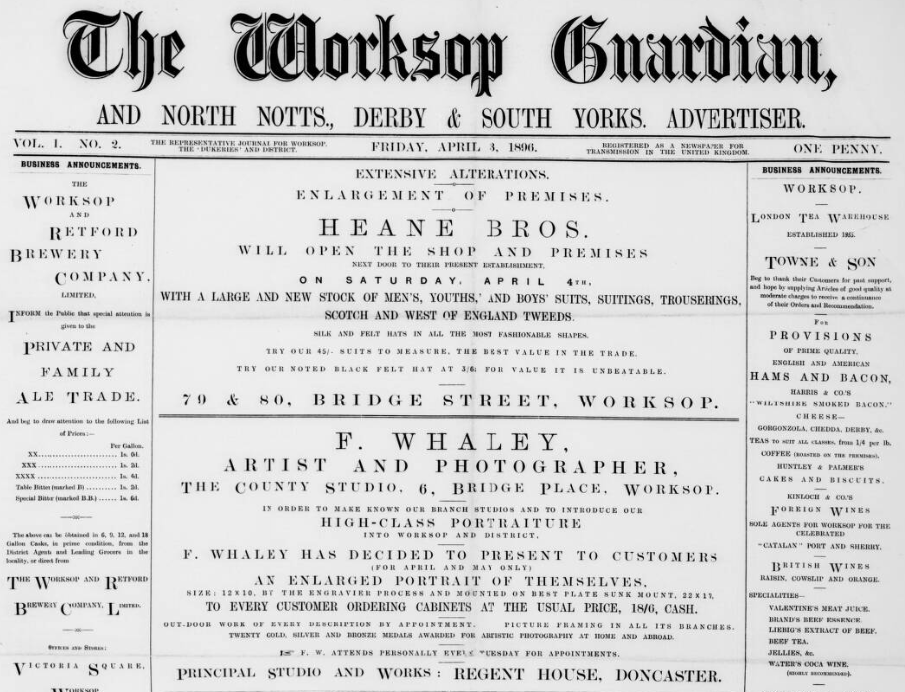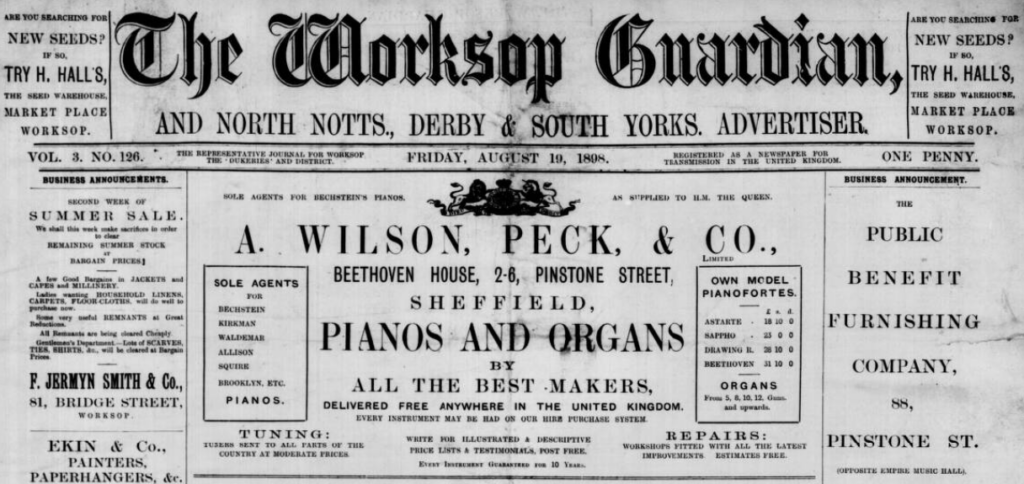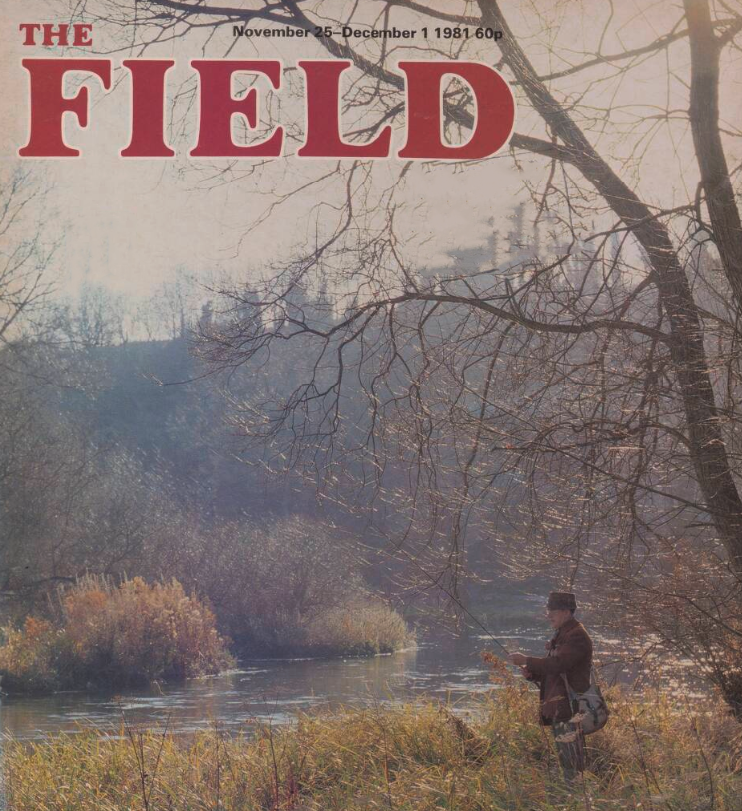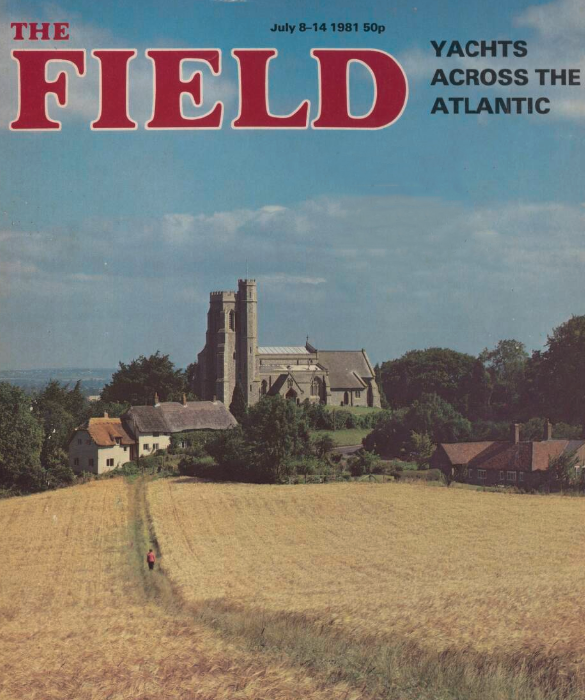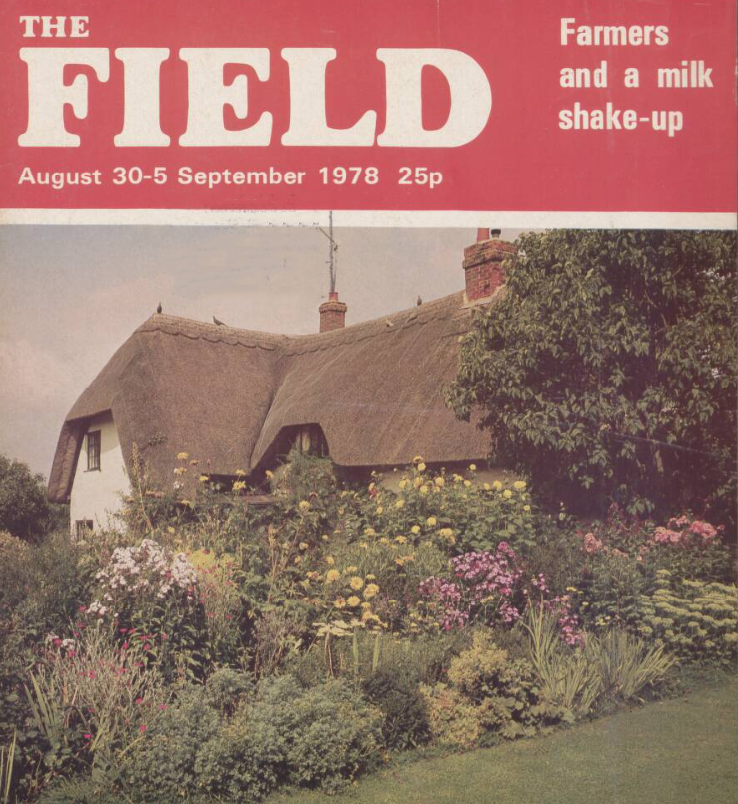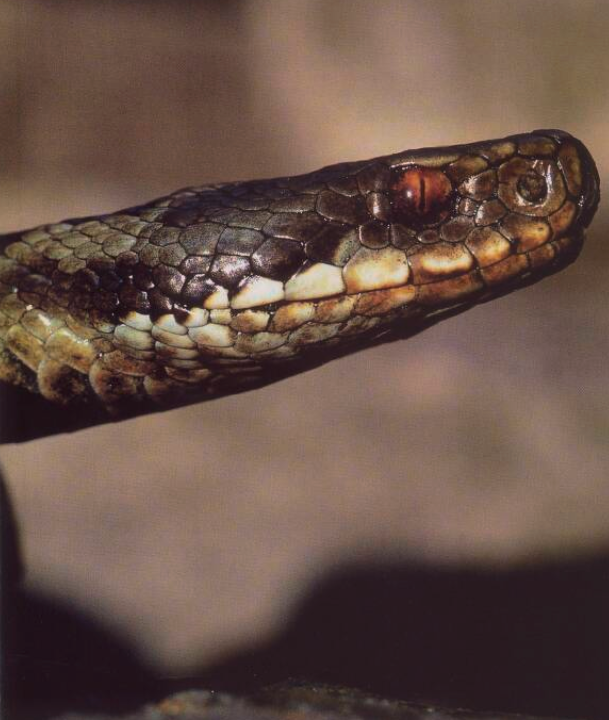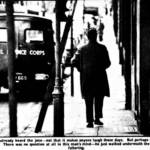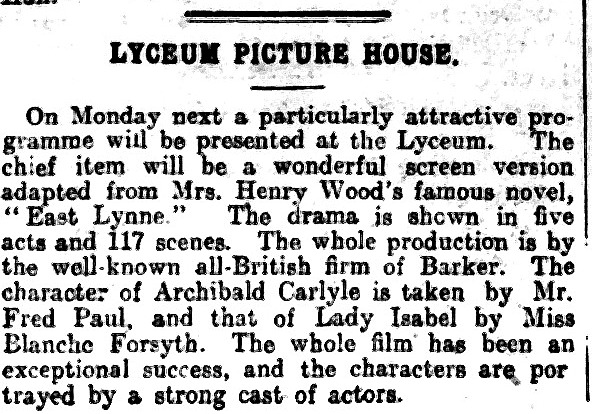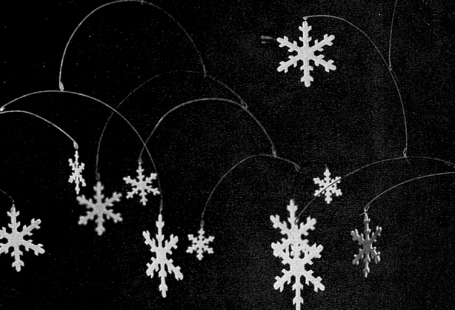This week at The Archive, as well as reaching an incredible 85 million newspaper pages, we are also delighted to welcome new pages to the world’s longest-running country and field magazine, and one of Britain’s oldest magazines, The Field. That’s not all, we’ve also added one brand new title to our collection this week, the Worksop Guardian, with updates to fourteen of our existing titles, as 169,756 new pages join us in all.
So read on to discover more about our new title of the week, and also to learn more about the remarkable history of The Field. Meanwhile, as it’s spooky season, we’ll be uncovering some fascinating old superstitions from the new pages we have added to The Field.
Register now and explore The Archive
The Worksop Guardian
But before we get a little spooky, let’s welcome our new title the Worksop Guardian to The Archive. First published on 27 March 1896 as the Worksop Guardian and North Notts, Derby & South Yorks Advertiser, this title aimed to ‘step forward in’ the interests of the people of Worksop, as it intended to ‘disseminate their news, further their own municipal affairs, guard and chronicle their political principles: in short to act as their representative newspaper.’
Indeed, the inaugural editorial for the paper also stated:
We are a new paper, and, what is more important, a new paper for Worksop, a town that, before the publication of this issue, did not possess a distinctly local journalistic organ. This sin of omission we have set ourselves to remedy.
Striding boldly on to the publication scene in Worksop, a market town in Nottingham, the Worksop Guardian appeared every Friday at the cost of one penny. As well as covering international and national news, the paper, as its debut edition stated, minutely detailed local affairs, with articles covering the latest from the Worksop Urban District Council and the Worksop Free Library, and with columns entitled ‘Worksop Day by Day’ and ‘Before the Worksop Magistrates.’
Looking beyond Worksop, the paper carried ‘News of the District,’ with reports from the likes of Langwith, Carlton in Lindrick, Bolsover, Kiveton Park, Tuxford, Ollerton, Rufford, and Retford. A lively read, the Worksop Guardian also printed serialised fiction in the guise of ‘Sherwood Forest Romances,’ alongside an illustrated London letter, a column dedicated to cottage gardening, a section penned by the editor called ‘Things Serious, Humorous and Grotesque,’ alongside notices of birth, marriages and deaths.
The Worksop Guardian still appears to this day, appearing every Friday.
New Pages Join The Field
Alongside our new title the Worksop Guardian, we’re delighted to welcome over 67,000 brand new pages to one of the UK’s oldest magazines, The Field, which span the years 1977 to 2009. Established in 1853, the idea for the magazine came from novelist R.S. Surtees (1805-1864), who identified a gap in the market for an illustrated paper aimed at sportsmen, landowners, farmers and hunters, generally those who could be described as ‘country gentlemen.’
So billed as ‘The Country Gentleman’s Newspaper,’ The Field has long focussed on countryside matters and field sports, although its sphere of influence has extended well beyond these two areas. Indeed, during the nineteenth century The Field helped to establish the Wimbledon tennis championships as we know them today. The tournament was even known as the Field Cup between 1877 and 1883, with the modern rules of tennis being thrashed out in the letter pages of the magazine.
Another of The Field’s claims to fame is that the publication helped to develop the dimples of the modern golf ball. The magazine also led a campaign against salmon netting, and led a series of rifle tests, which would lead to the invention of the hammerless shotgun. The Field also pioneered the way in developing kennel clubs and spearheading canine welfare.
One of the world’s earliest magazines dedicated to a hobby, The Field switched from a weekly to a monthly format, and it still appears to this day. New years added to The Archive of The Field cover the British countryside in all its colourful glory, featuring an array of informative and even humorous articles related to country living. Researchers will find The Field useful for not only its commentary on field sports, but for its details about country estates across Britain, its information on the history of dog breeds, and the history of country life in the United Kingdom.
As well as adding new pages to The Field, we’ve updated thirteen of our other existing titles. Particular highlights include the other 26,000 brand new pages we’ve added to the Wolverhampton Express and Star, whilst 23,000 brand new pages exactly have joined the Hartlepool Northern Daily Mail. Meanwhile, we have also updated one of our titles from Northern Ireland, namely the Derry Journal.
Very Superstitious – Exploring Old Superstitions with The Field
This spooky season here at The Archive we’ve been exploring old superstitions, and when we turned to the new pages that have been added to The Field, we discovered more.
On 1 June 1992 in The Field’s ‘Iktis’ column, we learn of an ‘ancient superstition’ that the ‘fox, like the hare, was one of those creatures into which witches could turn themselves.’ The writer described this spooky tale from the Oxfordshire countryside:
As recently as the end of the 19th century the inhabitants of Kirtlington in Oxfordshire used to speak of a local woman who could effect such a transformation. A fine specimen of a fox was often seen near her house and hunted unsuccessfully. One day it took refuge indoors. The huntsman followed it, only to find the old woman sitting alone by her fireside.
Fast forward to 1 July 1994, two years later, and Iktis was again describing some old countryside superstitions. These had to do with adders. Iktis described how ‘the cast skin of one of these serpents worn inside the crown of a hat was said to prevent a headache, or if tied round the leg, to avert rheumatism.’
The superstitions around adders were many. ‘Powdered and swallowed,’ the ‘sloughed skins’ of the adder were said to cure ‘ailments of the spleen and when laid against any pricked part of the body they withdrew thorns and splinters.’ Meanwhile, in Lincolnshire, ‘‘Hertherd broth’ made from adders’ flesh boiled with chicken was given to consumptives.’
Finally, Iktis describes how ‘in some parts of the country a dried adder’s skin, hung on the roof or over the hearth, was believed to protect the house from fire and bring good luck to those who lived there.’ All these superstitions relating to adders caused The Field writer to observe:
Remarkably, most of these superstitions involved dead snakes. Not much good, it appears, is credited to a live one.
Iktis once more took to the pages of The Field to describe some old superstitions on 1 November 1999, writing how:
There are one or two interesting superstitions about clothes. For example, in most parts of England it is considered ominous if a woman’s apron falls off. In Oxfordshire this means the birth of a child within a year.
Meanwhile, Iktis also described how ‘clothes of the dead are said to wear badly when given away or worn by the heirs,’ as they would ‘fret for their former owner.’ The Field journalist gave the example of a man who had disappeared in Lancashire, and how he was ‘presumed dead by his family because his clothes began to rot.’ However, the man returned ‘some five years later and was fined for desertion.’
How many of these old superstitions have you heard of? Can you find any more within the pages of The Field?
New Titles
| Title | Years Added |
| Worksop Guardian | 1896, 1898 |
Updated Titles
This week we have updated fourteen of our existing titles.
You can learn more about each of the titles we add to every week by clicking on their names. On each paper’s title page, you can read a free sample issue, learn more about our current holdings, and our plans for digitisation.
| Title | Years Added |
| Banbury Guardian | 1990, 1998, 2000 |
| Bedfordshire Times and Independent | 1996, 2002 |
| Derry Journal | 1998-1999 |
| Driffield Times | 1994, 2000-2001 |
| Field | 1977-2009 |
| Hartlepool Northern Daily Mail | 1991, 2001 |
| Horncastle News | 1942-1944, 1950-1952 |
| Leamington Spa Courier | 1977-1979, 1981 |
| Mid Sussex Times | 1979-1980, 1990, 1992 |
| Shields Daily Gazette | 1992, 1999 |
| Shropshire Star | 1986 |
| Sunderland Daily Echo and Shipping Gazette | 1992 |
| West Sussex County Times | 1972, 1988, 1990-1991 |
| Wolverhampton Express and Star | 1992-1993 |
You can keep up to date with all the latest additions by visiting the recently added page. You can even look ahead to see what we’re going to add tomorrow.


